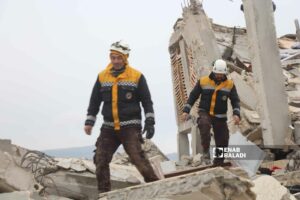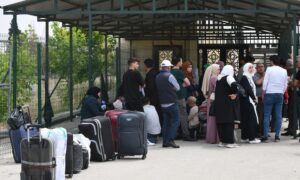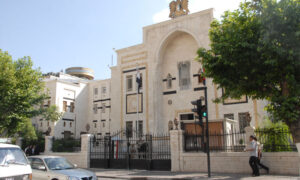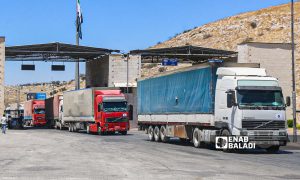ICC Clarification on Enforced Disappearance in Syria
States Circumvent “Old” International Laws
By Mansour Omari
Translated by Enab Baladi
I talked in my previous article: “International Romantic Court: Unable to provide justice, still we brag about it!”, about the International Day of the Victims of Enforced Disappearance, and the statement by the ICC Prosecutor, Fatou Bensouda, on this Day:
Enforced disappearances is a crime against humanity & falls within the jurisdiction of the ICC. The pain & suffering of the victims, their families and community should not go unnoticed. Justice & accountability matter.
Which is contrary to fact in the Syrian context that the crime of enforced disappearance in Syria does not fall within the jurisdiction of the ICC.
I asked the ICC about this statement to make it clear for Syrians. The ICC replied:
Several conditions have to be met for the ICC to have jurisdiction over a crime. The Prosecutor’s sentence is about one of them, the type of a crime, and can’t be read separately from the Court’s legal framework.
Please note that the ICC is concerned about any country where crimes are reported to be committed. However, the ICC can intervene only in accordance with the rules conditioning its jurisdiction. Syria is not a state party to the International Criminal Court. Unless Syria accepts the ICC jurisdiction, the only way that ICC would have jurisdiction over the situation would be through a referral by the Security Council like it was done for Libya and Darfur.
In fact, there is a huge pool full of emotions and opinions that separate Syrians from understanding the mechanisms of international organizations, including the United Nations, human rights organizations and others. This facts-free pool was created by several factors, including the blocking of this culture over decades of the rule of the Assad family, closing any door or entrance to the work of human rights and culture of human rights in general, and replacing them with partisan propaganda and dictatorial concepts that are incompatible with human rights. For example, human rights culture was absent in the school and university curriculum, the most important means of creating culture and awareness for nations, but was replaced by “the theoretical premises of the Baath Party” and “speeches of the father leader” and others, to create a generation of cattle, that follows the shepherd with no questions.
In order to determine what is required of these international organizations and to hold them responsibile, it is necessary to understand what they are first and what their tasks and mandates are.
This understanding serves to guide the Syrians in the right path to reach their rights and claims. For example, the ICC cannot be called upon to intervene in the Syrian situation, but it can be demanded at the academic and research level to do more for its independence and to try to reconsider the relevant international conventions, which have been decades old and have become inappropriate at present. Or they can demand that the UN General Assembly refer the situation in Syria to the ICC.
Though human rights activists and organizations tries to understand the mechanisms of the international community’s organizations to hold perpetrators accountable. Perpetrators, (governments or individuals) and their supporters also work hard to understand those mechanisms, but to circumvent and manipulate them.
For example, Article II of Chapter I of the UN Charter and the Statute of the ICC: ” All Members shall refrain in their international relations from the threat or use of force against the territorial integrity or political independence of any state, or in any other manner inconsistent with the Purposes of the United Nations.”
That is, no member state of the United Nations may attack militarily another State, but to avoid this basic provision, some states have changed their strategies of aggression and interference against the integrity and political independence of another state. For example, Iran does not intervene militarily directly in Iraq, Lebanon and Yemen, but rather builds militias of the nationality of the victim state based on their religious allegiance, such as Hezbollah in Lebanon and many militias in Iraq, and the Houthis in Yemen, and funds them by money and weapons to make them its striking hand in those countries rather than, being involved directly and conventionally by military intervention. Thus, these militias become the tools of Iran in these countries for military intervention, as happened when Hezbollah invaded Beirut in 2008 to change government decisions and, for political control, as is the case in Iraq.
Through this strategy, Iran goes bypass the violation of the UN Charter, which condemns traditional direct intervention, but does not speak of direct intervention with innovative mechanisms, as Russia did when it sent Russian soldiers dressed as rebels in the Ukrainian Donbas to camouflage direct military intervention in defiance of international laws.
if you think the article contain wrong information or you have additional details Send Correction
-
Follow us :

















 A
A
A
A
A
A







 More Opinion
More Opinion